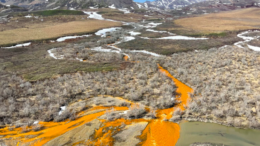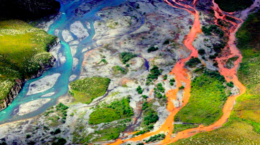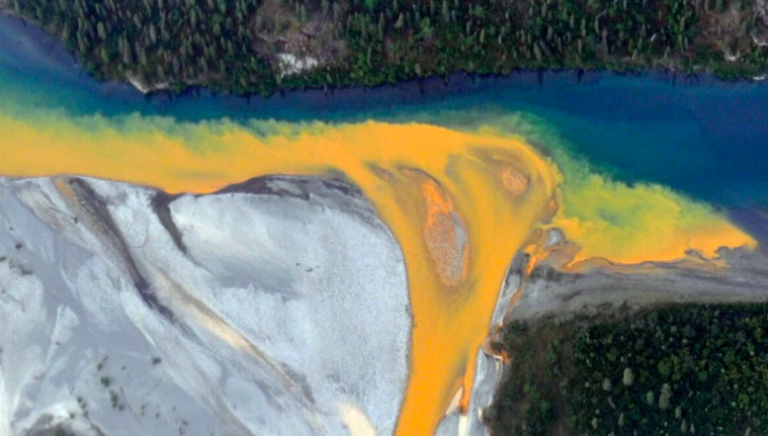American scientists are sounding the alarm as they observe with astonishment that dozens of rivers and streams in Alaska have acquired a vivid orange color over the past five to ten years. This phenomenon is attributed to the melting of permafrost, a frozen layer covering large areas of the Earth’s surface in the Arctic. This thaw has released high levels of toxic metals into the waterways, according to researchers from the National Park Service, the University of California, Davis, and the US Geological Survey. Experts warn that river pollution, visible from space, could evolve into an ecological nightmare and may worsen in the coming years. A study published on May 20 in the journal “Communication Earth & Environment” identified at least 75 orange rivers and streams in an area the size of Texas in the Brooks Range of Alaska.
Mitsotakis: Visit to the construction site of the Patras-Pyrgos Highway Axis – Impressive progress


American scientists are alarmed by the discovery of dozens of rivers and streams in Alaska turning bright orange over the past five to ten years. This is due to the melting of permafrost, which covers large areas of the Earth’s surface in the Arctic. Chemical analysis revealed high levels of toxic metals such as lead, nickel, copper, cadmium, and iron in the water, largely responsible for the orange coloration. The acidic pH levels in some streams, as low as 2.3, are as acidic as lemon juice or vinegar, according to the US Geological Survey. This high concentration of metals and acidity could lead to further permafrost thawing. As frozen ground melts due to global warming caused by humans, previously “locked” minerals are exposed to rain for the first time in thousands of years, allowing metals to dissolve into rocks and nearby streams, which feed larger rivers. The contaminated habitats not only undergo external transformations but are also highly toxic to most aquatic organisms, researchers emphasized. They expressed serious concern about the potential impact of toxic water from permafrost thawing on fish reproduction, which could severely affect US fisheries.
Ask me anything
Explore related questions





